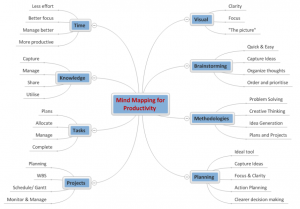There is a parallel between handicapping systems used at the Saratoga Race Course and job search strategies being applied by the marketing executives I coach.
- Handicapping is simply selecting a strategy to improve the odds of winning.
- Job search strategies are handicapping a large bet on landing a new job.
Relevance Of Job Search Strategies To Different Betting Systems Used By My Racetrack Friends
Favorites: Higher Chance Of Achieving Limited Success.
- Handicapping: Bets on horses that seem nearly certain to win…even though they often don’t.
- Job Search: Targets companies and jobs very similar to their most recent positions making the fit obvious.
- If you want another job similar to your previous one, then your resume should end at the top of the pile for consideration.
10 Cent: Low-Cost Approach Trying For Above Average Payoff.
- Handicapping: Bets ten cents each on many combinations of horses. The bettor isn’t trying for a killing, but believes they have a better chance of a decent payoff by playing a lot of options rather than using a more focused approach.
- Job Search: Scatters resumes everywhere slightly appropriate since you never know when the hiring manager will discover they should be looking for your skills even though the resume doesn’t closely meet the job spec.
- With email, each resume actually costs less than ten cents, but the open rates are lower than for most other bets and the effort takes a lot of time that is mostly unproductive.
Trainer and Jockeys: Successful Trainers And Jockeys Are Winning A Higher Percentage Of Races.
- Handicapping: Bets on horses based on the most successful trainers and jockeys, regardless of other factors.
- Job Search: Targets their job search on growing companies or categories.
- While growing situations definitely generate opportunities, there are a lot of openings where companies need turnaround help or are too new to have a track record.
Win: Confident Picking The Winner.
- Handicapping: Bets on a single horse to win, an all or nothing strategy.
- Job Search: Focuses all effort on landing a single great job that has been identified.
- While the odds of success vary, never believe you are betting on a sure thing. This often happens after a positive interview when the job search is put on hold.
Exactas and Trifectas: Selecting The First Two Or Three Horses In The Correct Order.
- Handicapping: Increasingly difficult with corresponding higher rewards.
- Job Search: Here the odds get better, unlike race-track handicapping. It’s like broadening the win bet to include two or three core companies.
- Be sure there is a strong case for your unique and relevant benefit for each company.
Moving Up In Class: Running Against More Difficult Competition.
- Handicapping: While a horse seems less likely to win when the trainer puts it in a race with higher quality horses, trainers should only make this move only when they see a horse is improving and has reached a new plateau.
- Job Search: The equivalent is getting a job with a more prestigious company or a higher-level job with more responsibilities and income.
- Getting a better job is the primary reason for changing your job when employed and an objective when searching when unemployed.
- To achieve this, you need a unique, desirable skill or excellent references.
- Getting a better job is the primary reason for changing your job when employed and an objective when searching when unemployed.
Moving Down In Class: Running Against Easier Competition.
- Handicapping: While you would think that a horse should have a better chance of winning when running against weaker competitors, a handicapper looks at a drop down two ways:
- The trainer is intent on winning a race, or
- The horse is worn out and cannot run anymore.
- The trainer is intent on winning a race, or
- Job Search: Moving to a smaller company or taking a step down in the organization chart should make a candidate more desirable.
- Regardless, companies are hesitant to even consider candidates who they believe are “overqualified.”
- Therefore, it’s important to sell why taking this job is good for you as well as the company.
- Regardless, companies are hesitant to even consider candidates who they believe are “overqualified.”
How To Place Your Bet:
Whether placing a bet on a horse or how to find your next job, it helps to start with a thorough analysis of past performances and select a handicapping system to guide your search.
Business & Finance Articles on Business 2 Community(89)
Report Post



